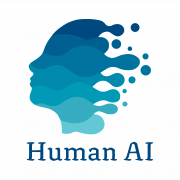“Oh the AI!”
Creativity versus AI, the impact of AI in professions and trades, the use of GPT chat in the classroom, AI-based avatars as a teaching tool and ethics and values in the use of AI were some of the issues addressed by the various speakers at the conference for teachers “Oh the AI” organized by the Navarre Employment Service at the Civican in Pamplona; moderated by Rubén León, a journalist from Spanish Television.
“Education has to change, it can no longer be focused on the industrial model and must open doors to a digital world” said teacher Rubén Jiménez, in the block on creativity and AI.
Carlos Fernández de Vigo – film director, screenwriter and video game creator – spoke about the AI revolution in our lives as a historic opportunity. From Emotional Films – a new interactive audiovisual format that aims to offer audiences an experience that adapts in real time to their emotions and other key audience data – they have carried out projects with AI, among others, with the Cervantes Institute. “Movies are not the same depending on who is watching them and at what time they are watching them, they evolve with the viewer.”
Their vision of technology is philosophical and includes many sociological, pedagogical, psychological, neuromarketing, lawyer and engineer profiles. “We are people who want our creations to live on. We have made short films with people who were recycled from other sectors and thanks to technology they did the reskilling”.
Francesc Pujol – writer and teacher at the University of Navarra – with his vision of active network explorer started using ChatGPT because he imagined a radical impact on the learning process, both his own and regulated. He has learned to integrate it from practice and testing, without waiting to be told about it and advocating that all student work should be delivered together with the methodology used to carry it out, the screenshots of the questions to ChatGPT, assuming that from now on it will be an inevitable and indeed recommended use.
“You don’t have to wait to be an expert to use ChatGPT, no high training is necessary and it has a lot of self-learning. We have to give ourselves the right to explore and make mistakes in the use of AI” says Francesc. “ChatGPT should be used to ask about things we know, this seems counter-intuitive but it involves improving the things you already do.” Conclusion, let ChatGPT work for you and not instead of you, let it be an assistant and not an agent.
Finally, Elena Alemán is president of LucIA foundation, an initiative that aims to achieve a degree of knowledge, development and implementation of Artificial Intelligence (AI) ecosystems equivalent to those achieved in recent decades in the field of renewable energies. For his part, he presented the topic “Ethics and values in AI”.
Good uses? AI is making our lives easier, to help us with more global issues: health, environment, research thanks to a lot of rapidly processed data. Dark” uses? Since AI decides and generates content, it is important to know with what values and criteria it has been trained and the ownership of the data.
“Technology is ahead of legislation, in Europe a regulation is going to be generated in the first quarter of the year 24. What can we do? Training, communication and AI to combat AI.”





